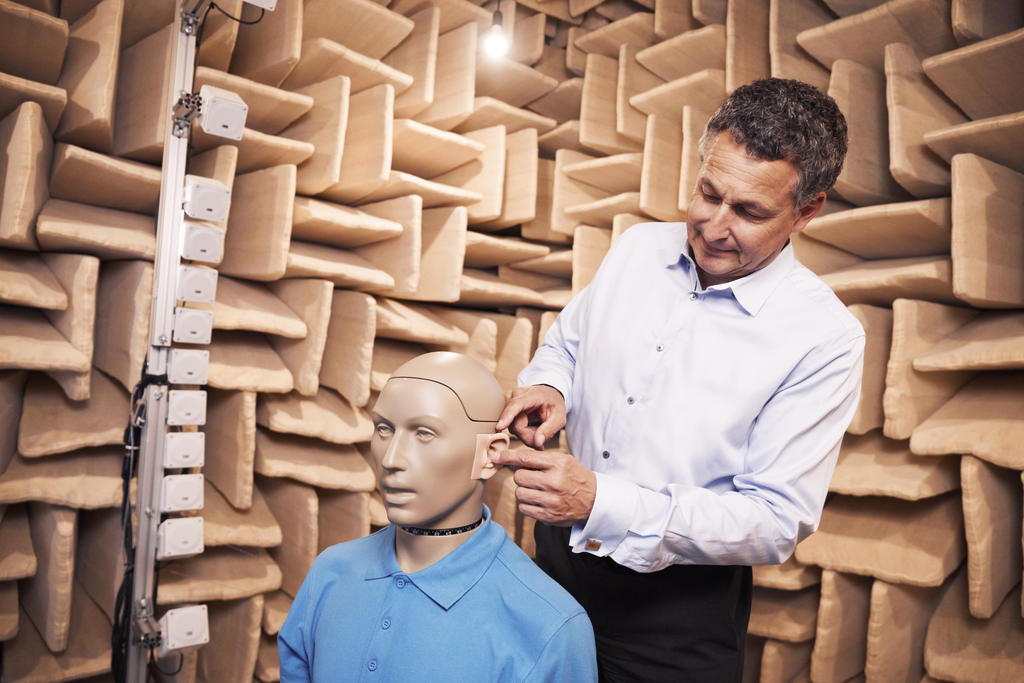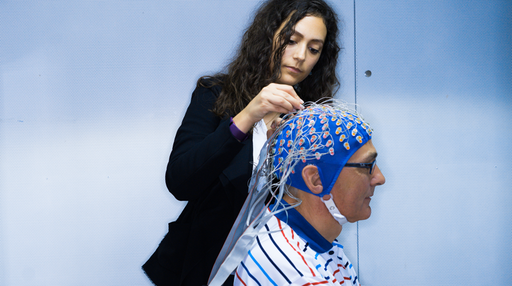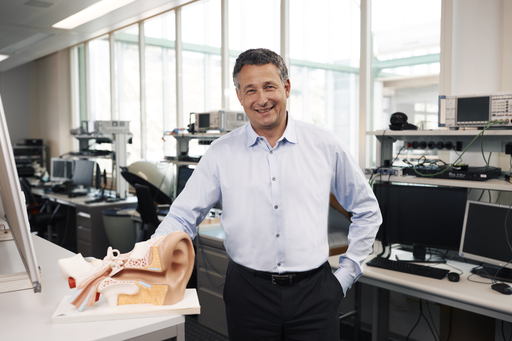-
Company
-
Brands
- A House of Brands
-
Hearing Instruments
-
Consumer HearingConsumer Hearing
-
Cochlear ImplantsCochlear Implants
-
Audiological CareAudiological Care
- AudioNova - Brazil
- AudioNova - Denmark
- AudioNova - Italy
- AudioNova - Sweden
- Audition Santé - France
- Boots Hearingcare - UK & Ireland
- Connect Hearing - Australia
- Connect Hearing - Canada
- AudioNova US
- Geers - Germany
- Geers - Hungary
- Geers - Poland
- Hansaton - Austria
- Lapperre - Belgium
- Schoonenberg - Netherlands
- Triton Hearing - New Zealand
-
Investors
- Investors overview
- Ad hoc announcements
- Why invest in Sonova & strategy
- Presentations & webcasts
-
Financial reports
- Current outlook
- Key figures
- Financial calendar
-
Corporate governance
-
Sonova shares & bondsSonova shares & bonds
- General Shareholder's Meeting
- Services & contacts
- Newsroom
-
Careers
-
Your career with us
-
Apply now
-
Why Sonova
- Get to know our talents
-
sonova global
- Global
-
North America
North America
-
Pacific
Pacific
-
Latin America
Latin America
- Asia
- Europe
Global
North America
Pacific
Latin America
Asia
Europe
-
Company
-
Brands
Brands
- A House of Brands
- Hearing Instruments
- Consumer Hearing
- Cochlear Implants
-
Audiological Care
- AudioNova - Brazil
- AudioNova - Denmark
- AudioNova - Italy
- AudioNova - Sweden
- Audition Santé - France
- Boots Hearingcare - UK & Ireland
- Connect Hearing - Australia
- Connect Hearing - Canada
- AudioNova US
- Geers - Germany
- Geers - Hungary
- Geers - Poland
- Hansaton - Austria
- Lapperre - Belgium
- Schoonenberg - Netherlands
- Triton Hearing - New Zealand
-
Investors
Investors & financials
- Investors overview
- Ad hoc announcements
- Why invest in Sonova & strategy
- Presentations & webcasts
- Financial reports
- Current outlook
- Key figures
- Financial calendar
- Corporate governance
- Sonova shares & bonds
- General Shareholder's Meeting
- Services & contacts
- Newsroom
- Careers
sonova global
Choose your country
- Global
-
North America
North America
-
Pacific
Pacific
-
Latin America
Latin America
- Asia
- Europe
Global
North America
Pacific
Latin America
Asia
Europe

Exciting insights into the fascinating world of hearing
Hearing is the most underestimated human sense. Our ears perceive what is happening around the clock. Stefan Launer, Senior Vice President Audiology & Health Innovation at Sonova, and Nathalie Giroud, Assistant Professor at the University of Zurich (research group for Computational Neuroscience of Speech & Hearing), answer questions from the Swiss Migros Group Health Portal. Read excerpts from the interview on the current state of research here.
What is being researched when it comes to hearing?
Nathalie Giroud: The question is: How do we process an acoustic signal such as music or spoken language? The fields of research include audiology, brain research, linguistics and similar areas. Audiology, for example, explores the processes involved in hearing, the disorders of hearing, and the development of treatments. Stefan and I reflect these fields in basic research and applied areas.
Why does hearing decrease with age?
G: With age, not only the inner ear changes, but also the brain. A thinner auditory cortex in the brains of older people is responsible for this. It thins out. Certain connections disappear. Older people therefore often have fewer resources to process information.
Stefan Launer: As you get older, you have less cognitive capacity to do the same tasks. One can follow a conversation well if one makes an effort. In the process, one gets tired because one hears poorly and has to make an effort, not because one is getting old. It takes a lot of effort to understand words. When the brain can no longer interpret correctly received signals, it is called sound perception hearing loss.
What other causes can hearing loss have?
L: A distinction is made between conductive and sensorineural hearing loss. The former means damage in the ear canal or middle ear, for example due to a middle ear infection. In such cases, sound waves no longer reach the inner ear at all or only to a reduced extent. Another cause can be damage to the inner ear, which converts the signals into electrical impulses. This then no longer works. Hearing loss becomes apparent, for example, when you have to turn up the TV, ask questions more often or no longer hear the birds chirping.
The value of hearing is underestimated - not hearing separates people, leads to social withdrawal and depression. The emotional impact is enormous.

«When no signal reaches the brain, it degrades. Not only in the area responsible for hearing, but also in others, such as the hippocampus, which is important for memory.»
- Nathalie Giroud, Assistant Professor for Neuroscience of Speech & Hearing at the University of Zurich
Where does research stand on the subject of hearing loss?
G: The University of Zurich is conducting research: How can hearing training be made relevant to everyday life? A hearing aid ensures that spoken language reaches the brain. But additional training is needed so that speech can be processed in the brain and stored in memory. Until now, such brain training has been very artificial, such as pressing a letter on the computer when you hear it. This led to little success for people with hearing loss in everyday life. We are also currently investigating the effectiveness of app-based lip-reading practice. Other questions: How can we train the brain so that it learns to cope with fewer resources? With neurofeedback – based on measuring brain waves that are analyzed by a computer. "Good" brain waves are then fed back to the patient via feedback and thus reinforced.
L: Switzerland is very interesting for Sonova because of this research. That's why we have a cooperation with the University of Zurich to find out how to support the brain.
G: It's a win-win situation because a good supply of appropriate hearing aids is guaranteed. There are now hearing aids that do a lot of the work of the brain.
Ms. Giroud, you conducted a study to investigate how quickly the brain can learn in old age. The result?
G: The most important finding of the study is that in older people with hearing loss who are newly fitted with hearing aids or who undergo a hearing aid change, the brain needs about twelve weeks of intensive training to be able to process speech approximately as well as before. Intensive training in this study meant wearing the hearing aid at least twelve hours a day to practice hearing with the hearing aid. Many people with hearing loss think that a hearing aid helps them immediately, but it takes a lot of perseverance. Thanks to this study, it is clear that we need to redefine hearing loss and can no longer reduce it exclusively to age-related damage in the inner ear.
What do people who wear hearing aids say?
G: They talk about more self-confidence, less stress, they feel better and their quality of life improves. And they can use them increasingly easily and without complications. Wearing time has increased in recent years to an average of 8-12 hours per day.
«The value of hearing is underestimated - not hearing separates people, leads to social withdrawal and depression.»
- Stefan Launer, Senior Vice President Audiology & Health Innovation at Sonova

Is there a link between poor hearing and dementia?
G: When no signal reaches the brain, it degrades. Not only in the area responsible for hearing, but also in others, such as the hippocampus, which is important for memory. In Alzheimer's patients, for example, the hippocampus also degrades very strongly. Nevertheless, hearing loss does not lead to dementia, but it is a risk factor. There are studies that examine various factors of dementia. High blood pressure, too little exercise, loss of social interaction and others play a role. Genetic and other unchangeable factors make up two-thirds, but one-third could be effectively treated preventively, such as those mentioned above. And one of the preventive factors is avoiding or treating hearing loss.
L: Australian studies showed in September 2020 that hearing aids could help slow memory decline. These are preliminary, early results.
Where are we in the development of hearing aids?
L: The primal hearing aid was the hand behind the ear. Systematically, ear trumpets were applied in the 16th century. However, the nobles hid everything behind fans or wigs. Today, hearing aids are networked, for example with cell phones or the TV. In the future, manufacturers will also incorporate optical sensors and respiratory frequency measurement. The bottom line is that a multifunctional device could emerge that could also monitor various health parameters and support healthy living.
The ear as a monitor of health?
L: The ear is better suited for health prevention than other parts of the body. It has very good blood circulation and less disturbance. The ear is better for measuring heart rate than the wrist.
G: Research is also being done on so-called "brain computer interfaces": they measure brain activity. An example: If I'm in a room where there are different sounds - including voices - and I want to focus on one: What does the brain do to help us focus on someone? Thanks to measurements, we know it in real time and can feed it into the hearing aid. These hearing aids are not yet on the market, but there is a lot of research going on. Prototypes already exist. The basic research behind it is conducting studies to find out how attention works in the brain. In milliseconds!
More information
With support from Sonova, a globally unique study by the University of Zurich has managed to measure and visually map the consequences of age-related hearing loss in the brain. The results? In the event of hearing loss, the brain requires intensive training to regain a better understanding of speech using hearing instruments.